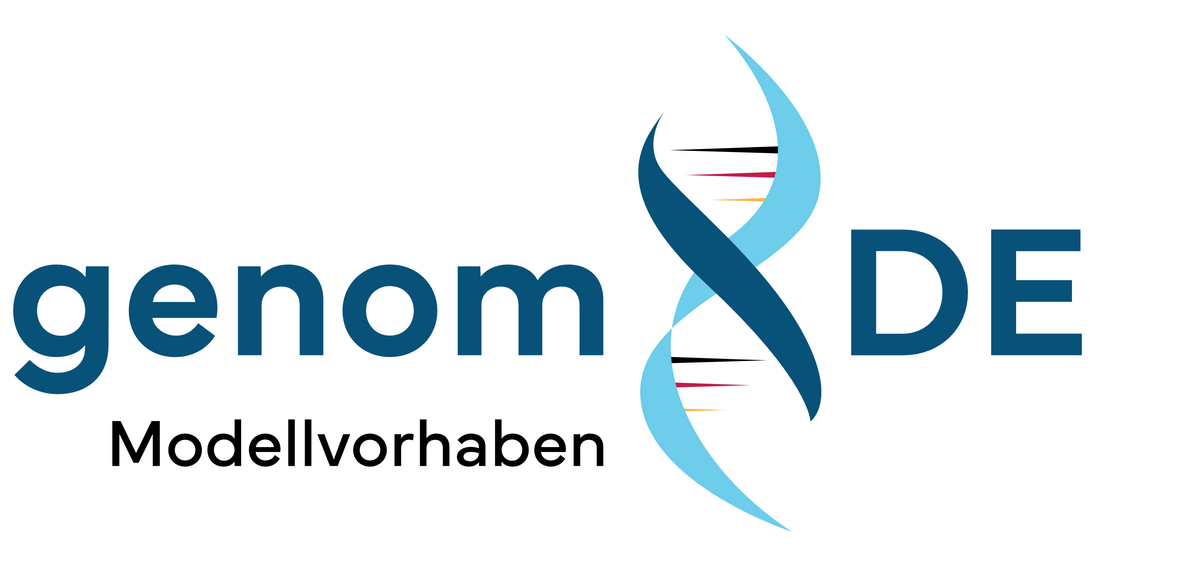Spearheaded by the Federal Ministry of Health (BMG), the National Strategy for Genomic Medicine was launched in 2019 with the aim of integrating genomic medicine into the German healthcare system. As part of this strategy, Germany joined the 1+ Million Genomes Initiative and established the legal framework for developing data infrastructures. The introduction of § 64e SGB V (“Model Project for Comprehensive Diagnosis and Therapy Using Genome Sequencing for Rare and Oncology Diseases”) laid the foundation for integrating genomic medicine into routine care.
Since late 2021, the genomDE initiative, coordinated by TMF e.V., has been addressing ethical, regulatory, and safety issues associated with the model project. Embedded within nationwide genomic medicine initiatives, experts have developed a plan for implementing the genomDE model project. GHGA is a key partner and has significantly contributed to the conception and development of a nationwide platform.

As of July 2024, genome sequencing is being offered nationwide at participating university hospitals for patients with cancer and rare diseases. Public health insurances are supporting the project with 700 million euros. The goal is to identify genetic changes that may trigger these diseases, enabling earlier and more precise diagnosis and treatments tailored to the individual genetic profiles of patients.
After the initial five-year period, a legally mandated evaluation will assess the benefits of the project and its transition into standard care.
Clinical and genetic data are being collected during the genomDE model project. This data will not only help in diagnosing and treating patients, but also in evaluating the project. Additionally, the data will contribute to research, providing new insights into the links between genetic variations and diseases.
To ensure the secure storage and shared use of this data, the Federal Institute for Drugs and Medical Devices (BfArM) operates a dedicated data platform. The platform is structured so that clinical data are stored in Clinical Data Nodes and genomic data in Genome Data Centers. This separation enhances data security.
Clinical Data Nodes are located at various university hospitals across Germany, while the Genome Data Centers are operated by qualified scientific research institutions - all of which serve as GHGA Data Hubs. GHGA thus provides the archiving and research platform for the genomic data generated within genomDE model project.
All genomic and clinical data are pseudonymised to ensure they cannot be directly traced back to individuals. A specialised trust centre at the Robert Koch Institute (RKI) in Berlin is responsible for securely processing and linking these datasets.
GHGA hosted a well-attended workshop at the GfH conference. The session brought together experts and interested participants for insightful discussions on the future of genomic data in research and healthcare.
Learn moreGHGA is pleased to announce the legal onboarding of our GHGA Data Hubs in Berlin, Cologne and Munich, marking a significant step forward in the development of its federated data infrastructure.
Learn moreGHGA members participated in key conferences, engaging with diverse communities on topics ranging from European genomic data infrastructure and secure processing environments to systems medicine and research data management.
Learn more